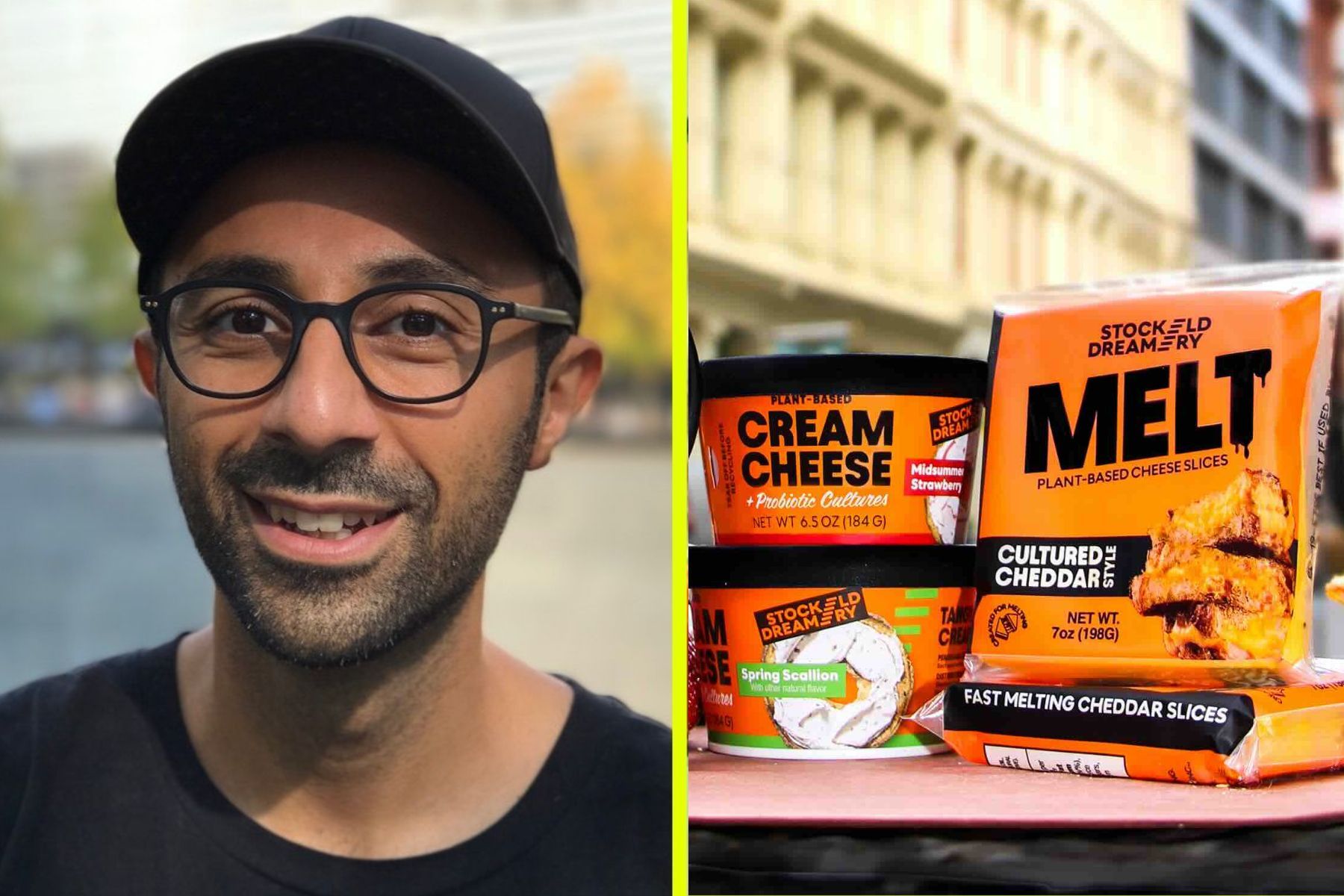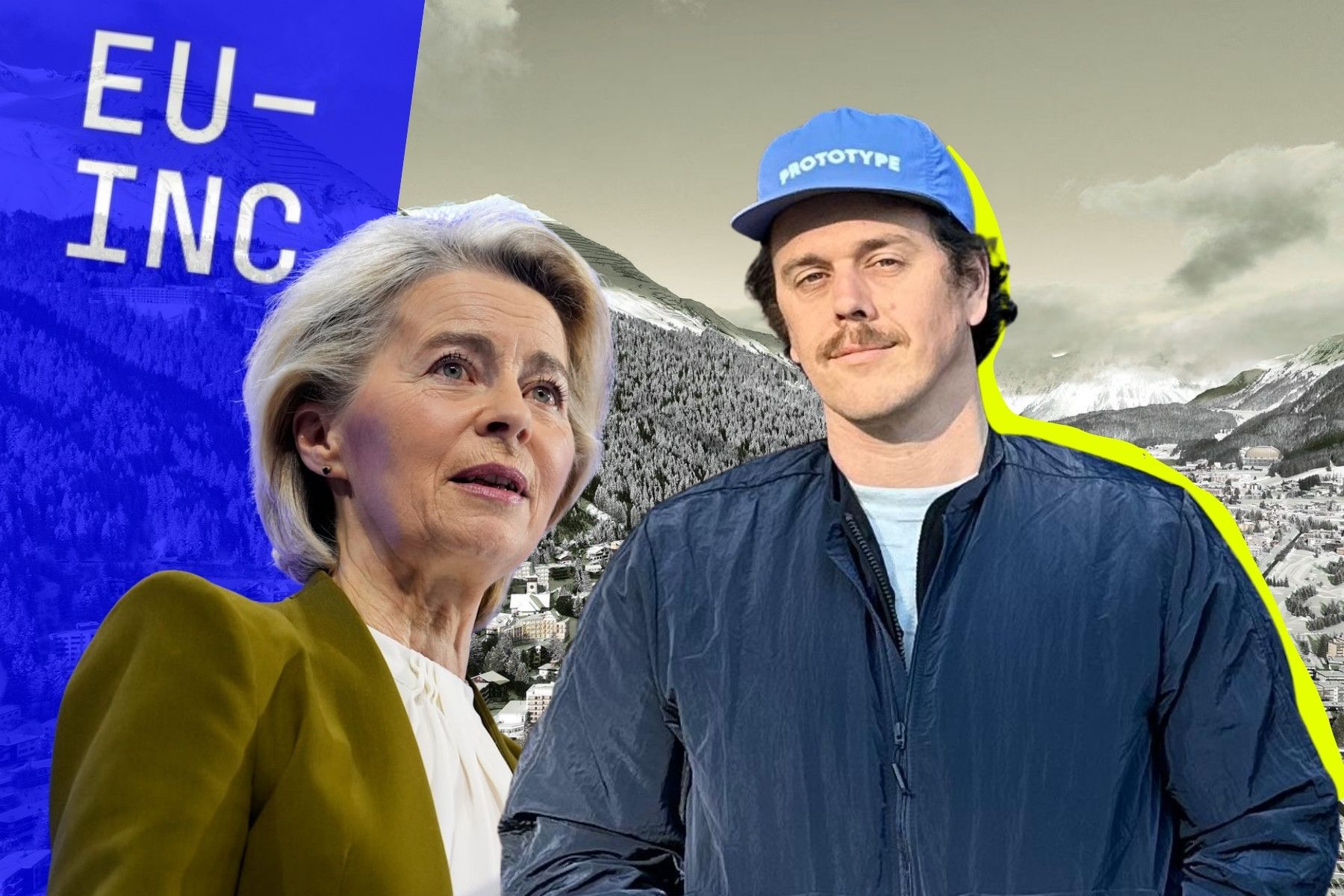Vegan cheese firm Stockeld Dreamery melts down: 'People just don't want these products'
After six years of hard work, €20m from investors and a move to the US, founder Sorosh Tavakoli is shutting down his vegan cheese company, Stockeld Dreamery.<br><br>“People just don’t want these products – they love dairy,” he tells Impact Loop.


Sorosh Tavakoli takes my call while walking through the streets of New York. It’s here that he’s been living with his family for the past few years, dedicating himself fully to getting his company Stockeld Dreamery’s melting vegan cheese into American supermarkets and restaurants.
He’s succeeded in doing just that – his products are now, by his own account, available in around 500 locations. The problem is, that’s still nowhere near enough for him to dare – or perhaps to have the energy – to take the next step.
“We feel we’ve given it everything. Of course, it’s sad to shut down after six years, but at the same time it feels completely right,” says Tavakoli.
'No case to build on'
The decision came after he and the board reviewed sales figures from the past six months. The company would have needed new capital to scale further, but the numbers made it impossible for Tavakoli to see that as a sound idea.
“It became clear there wasn’t a business case to build on. We’ve had good feedback and sold at similar levels to our competitors, but it’s just not enough. So we felt it was better to carry out an orderly closure,” he says.
As he speaks, an ambulance passes by in New York – its sirens briefly drowning out his voice.
Born in another time
Stockeld Dreamery was founded in 2019, a time when vegan food alternatives were on the rise. Tavakoli started the company with biotechnologist Anna Leissner (who has since left the firm), with the aim of taking on the dairy industry by offering plant-based products that weren’t just nutritious and climate-friendly – but actually tasted better than the originals.
Ambitions were high, and so was the belief in plant-based foods. The company raised €20m from investors including Northzone and Astanor, and went big. It rented a large space in Stockholm, housing offices, a test kitchen, and laboratories. Tavakoli himself invested a substantial amount after selling his previous company, Videoplaza.
Things went smoothly for a while – until they didn’t. By 2022, Stockeld Dreamery had to slam on the brakes. Staff numbers were cut from 40 to 18, and Tavakoli relocated the business across the Atlantic.
A business – but too small
Now, three years and one restart later, it’s not about slowing down again – it’s about pulling the plug. There is still a business, but not one large enough to survive.
As Tavakoli puts it, the bigger case for Stockeld collapsed because it has proved far harder than expected to get vegetarians who consume dairy to switch to plant-based alternatives.
According to Tavakoli, the US arm of Stockeld Dreamery was on track to generate around €910,000 in revenue next year – roughly half that this year.
“We’d need about $6m to reach profitability with an even smaller team. It would take three to four years and require even more capital along the way. That’s not an attractive case for either the team or investors,” he says.
Doors close by end of November
Operations have now ceased, and the seven remaining employees have been made redundant. The premises are to be cleared out by the end of November. The products will remain on shelves for a little while longer – but once they’re gone, they’re gone.
“We knew the market wasn’t huge, but it was growing fast when we started. In the past few years, it’s only shrunk,” says Tavakoli.
That’s backed up by data from the Good Food Institute, which tracks the plant-based food market. It reports that sales grew rapidly between 2019 and 2021 before slowing in 2022 – and then declining over the past two years.
How much money have you lost?
“I put in about a million kronor early on and went without a salary for roughly the first two years. It’s also been very expensive living in New York with three kids. Of course, it’s disappointing to lose money, but I don’t regret it. It’s a natural part of running a startup,” he says.
According to Tavakoli, the US foodtech market for challengers has gone from tough to brutal.
“People don’t want these products – they love dairy. They think it tastes good and that it’s healthy. Everyone says the climate is important, but it’s not something the masses act on by cutting out dairy.”
What’s next for him?
“I don’t know. We might move home, we might stay. I’d love to stay in food, but it feels difficult, especially if you don’t want to work with animal products. I want to remain in the impact and climate space. Last time it took me three years to find something new – this time, I think it’ll be a bit quicker,” he says.
Get full access to Europe's new platform for impact news
- Quality journalism, interviews, investor profiles and deep-dives
- Daily newsletter with top stories, latest funding rounds and roundup to keep you in the loop
Keep reading – get in the loop!
- Håll dig i loopen med vårt dagliga nyhetsbrev (gratis!)
- Full tillgång till daglig kvalitetsjournalistik med allt du behöver veta inom impact
- Affärsnätverk för entreprenörer och investerare med månatliga meetups
Fortsätt läsa – kom in i loopen!
- Håll dig i loopen med vårt dagliga nyhetsbrev (gratis)!
- Full tillgång till daglig kvalitetsjournalistik med allt du behöver veta inom impact
- Affärsnätverk för entreprenörer och investerare med månatliga meetups








.avif)
